
IOM Representative |
|
 |
Mr. Vincent Matteau
Senior Programme Coordinator (EPC) HRRU, IOM Pakistan
Vincent Matteau is the Senior Programme Coordinator (EPC) of the HRRU Humanitarian, Resilience and Recovery Unit, that includes activities that incorporate emergency and crisis preparedness, mitigation and response in natural disaster and conflict settings, and leads the teams’ efforts in achieving the close coordination of IOM’s country, regional and headquarter offices, in all key units (Emergency health, Shelter and NFI, Water, Sanitation, and Hygiene (WASH) , DTM and Protection) . Additionally, IOM’s coordination with UN agencies and staff, government officials, NGO, donor governments, civil society, clusters, academia and other key partners involved in humanitarian emergency and recovery assistance, are all part of that is, and is needed to address all critical aspects of IOM's Strategic Results Framework , migration crisis management and emergency response. Pakistan has been hosting many vulnerable displaced Afghans for several decades, and the HRRU’s Emergency Health Unit, that includes the establishment of Primary Healthcare Facilities, with integrated comprehensive MHPSS programs, has been a great achievement, and is a vital role in providing vulnerable communities a safe and supportive environment to build resilience towards challenging circumstance, addressing profound mental health and psychological issues, and contributing to enhancing the overall quality of their lives. Thus IOM remains dedicated to such initiatives for supporting vulnerable host and Afghan communities.
|
Guests |
|
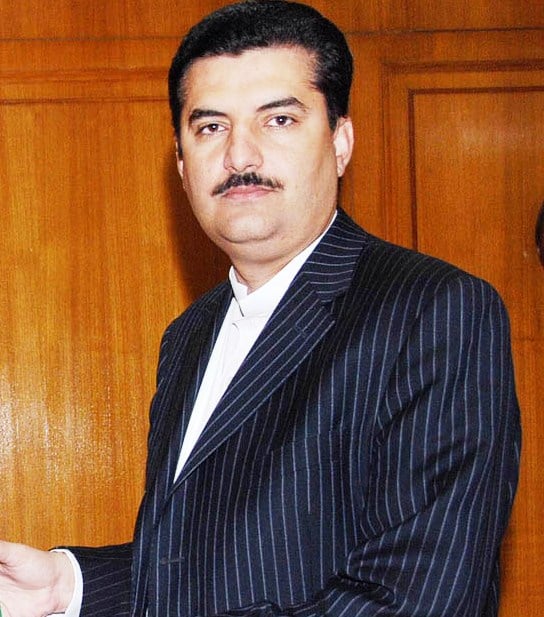 |
Faisal Karim Kundi
Faisal Karim Kundi, born in 1975 in Dera Ismail Khan, is a Pakistani politician and member of the Pakistan Peoples Party (PPP). He began his political career in 2003 and served as the Divisional Coordinator for the D.I. Khan Division of the PPP. In the 2008 Pakistani general election, he was elected to the National Assembly from D.I. Khan as a PPP candidate. His remarkable achievements include being the youngest person ever elected as Deputy Speaker in Pakistan's history, serving in that role from 2008 to 2013. He holds the position of Central Secretary Information in the PPP and is a member of the Central Executive Committee. Having graduated from Thames Valley University in London, UK, with a law degree. His passion for politics was nurtured during his association with the late Benazir Bhutto in London. In September 2022, he was appointed by Prime Minister Shehbaz Sharif as the Special Assistant to the Prime Minister (SAPM) on Poverty Alleviation and Social Safety, and he currently serves as the Minister of State for the Ministry of Poverty Alleviation and Social Safety in Pakistan.
|
Keynote Speakers |
|
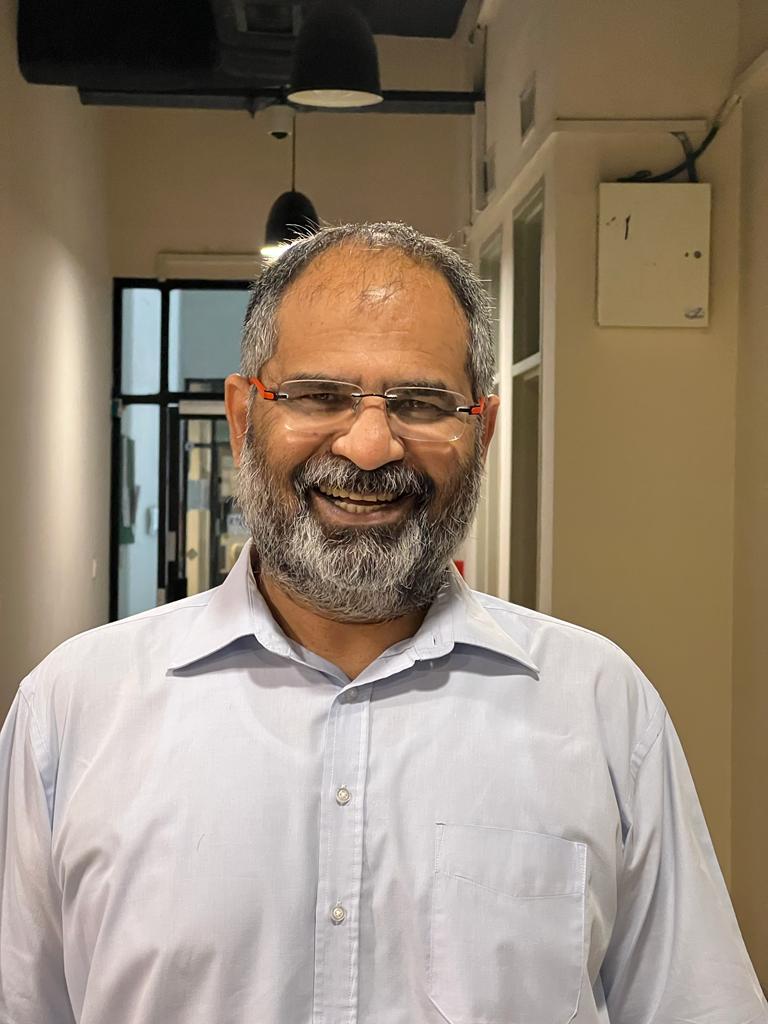 |
Dr. Furrukh Khan
Dr. Furrukh Khan is an Associate Professor of Postcolonial Studies in the department of Humanities and Social Sciences at Lahore University of Management Sciences (LUMS). He has a B.A. in English and Humanities from Ohio Wesleyan University, USA, M.A. and Ph.D. in Postcolonial Studies from University of Kent at Canterbury, UK. He is currently working on MIGNEX, a European Union funded, five-year collaborative research project, with a focus on ten countries to study the nexus between development and migration. He has worked on projects funded by USAID, World Bank, David and Lucile Packard Foundation, Swedish International Development Cooperation Agency and European Research Council. He is engaged with a number of Pakistani government ministries on various assignments. He was a Visiting Fulbright Scholar at University of Texas at Austin in 2011. Some of his other awards include: British Academy/ESRC Visiting Fellowships for South Asia and the Middle East, Asian Scholarship Foundation’s Asia Fellowship and Social Science Research Council’s South Asia Regional Fellowship. He was also selected for ERASMUS+ International Credit Mobility Program at Middlesex University. He has successfully completed courses on migration at University of Oxford, Columbia University and University of California, Berkeley. His research interests include the Partition of India, Postcolonial Literature, Migration, Shakespeare, Oral History, Pakistani Cinema and Reproductive Health.
Topic: Afghanistan’s Wars, Refugees and Decolonizing Trauma: The Devil’s in the Details
Abstract: Decolonizing trauma is still an emerging field to understand and address complex experiences of trauma that war-affected communities, in this case, Afghan refugees have faced. This approach challenges the dominant narrative of trauma as a purely individual experience, and instead locates it within the broader context of neocolonialism, war, and displacement. Decolonizing trauma requires a shift in perspective, from seeing trauma as something that happens to people to seeing it as something that is a culmination of a certain historical process. This shift allows us to see how trauma is not just a personal problem, but also a political one. Such an approach helps develop a nuanced understanding of how violence within the nation state that Afghans inhabit, forces them to flee because of the prolonged exposure to severe stress and trauma. The uncertainty and hardships which await them require an impossible task of ‘authentication’ of their trauma to get some respite in their new lives in unfamiliar places. This talk will explore the concept of decolonizing trauma through a variety of disciplinary lenses to understand the particularity of the Afghan refugees’ experience. To understand the complexity of trauma, one needs to raise questions about the underlying historical, political, and socio-economic reasons behind the present situation faced by the population fleeing Afghanistan. |
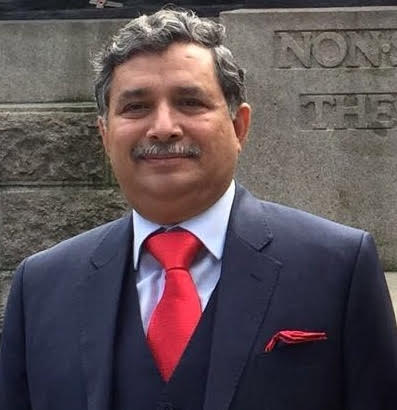 |
Dr. Syed Akhtar Ali Shah
Syed Akhtar Ali Shah is a leading expert in Pakistan security sector with vast experience in police operations, investigation, criminal justice system, public sector management and policy support. His civil service career span over three decades as a member of the Police Service of Pakistan. He have held seniors positions such as Senior National Consultant in Police as Acting Inspector General of Police (IGP), Additional Inspector General, and Chairman of Provincial Inspection Team (PIT) in Khyber Pakhtunkhwa. He had also served as Home Secretary of Tribal Affairs Department, Govt. of K.P. He closely worked with the departments that were integral part of the Criminal Admintrative Justice System including courts, prisons and reclamation and probation and public sector management as well as Refugees Commissionarate which included, police department both regional/field level to head quarter’s level.
Topic: Afghan Refugees- Issue of securitization
Abstract: The mass exodus of Afghan as refugees in the wake of perpetual conflict brought about by war during the last 42 brought nothing but Death, Destruction and Displacement (Three D’s),upsetting the social fabric of the society, injuring the sense of pride and dignity of person deep, leaving deep psychological scars on the members of the society as a whole. In this context Pakistan hosts more than 1.4 million registered Afghans who have been forced to flee their homes. ( UNCHR). Although being a humanitarian issue, Pakistan also considers this an issue of security. In this connection the assumptions based on security have an important role to play in separating those who are worthy of protection and those who are not, those who are like “us” and those who are not, those who threaten “us” and those who do not, those lives that matter and those that do not. Theorists of securitization, consider problems of security beyond political issues, therefore stress to deal those urgently. They also Call immigration at times a ‘threat to national security’ and problems of security. As such balancing security and human rights is quite difficult. In the process, state actions lead to confinements, restrictions, deportations, indifferent attitude, racial profiling, blames for terrorism and crime and burden on social structure and service delivery. Refugees are being haunted, taunted and life becomes a nightmare. The general perception developed is that they are responsible for terrorism and crime but the statistics’ bellies the perception. Therefore a sense of alienation and deprivation develops leading to hatred. Their pains and psyche conditioned due to war and migration can easily be discerned from their poetry, novels, short stories and songs. In order to ward those feeling there is need to treat them as human beings by affording them human rights and freedom of choices.
The author is a former Secretary to Government, Home & Tribal Environment and a retired IGP. He holds PHD in Political Science. He currently heads a think tank “Good Governance Forum” and can be reached at aashah7@yahoo.com
|
Guest Speakers |
|
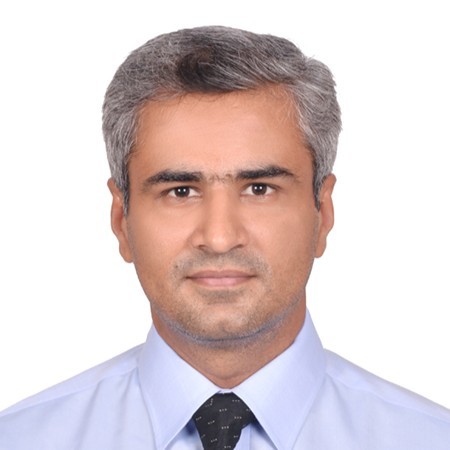 |
Dr. Mudassar Aziz
Associate Professor, University of Oslo, Norway
Currently serving as an Associate Professor of Psychology at the esteemed Department of Psychology, University of Oslo. Before joining the University of Oslo, I had the privilege of serving as a faculty member at Kwantlen Polytechnic University in Vancouver, Canada for two fruitful years. Additionally, I hold a deep sense of pride in my association with NIP, QAU, where I not only had the opportunity to contribute as a faculty member but also received my own psychology education. My academic journey also took me to Hanyang University in Seoul, a renowned institution celebrated for its excellence in Educational Psychology. Upon completing my Ph.D. there, I returned to Pakistan and played a significant role in the establishment of the Masters program in Psychology at SZABIST, Karachi. It was my honor to serve as an Assistant Professor and head of the Psychology department at SZABIST for a fruitful period of four years. Throughout my career, spanning over 15 years, I have devoted myself to the study, instruction, and research of Psychology. This commitment has provided me with a profound insight into the captivating realm of behavioral science. A cornerstone of my professional identity lies in the rigorous scientific approach I bring to the field. I firmly believe in utilizing research in psychology as a powerful tool to tackle complex real-world issues. These encompass a wide range of topics, including but not limited to refugee issues, the psychology of climate change, body image concerns, cross-cultural complexities, domestic violence, clinical matters, social psychology phenomena, the culture of honor, extremism, and educational psychology.
Topic: Life and mental health in limbo of the Ukraine war: How can helpers assist civilians, asylum seekers and refugees affected by the war?
Abstract: The terror spread by the war disrupts lives and severs families, leaving individuals and communities devastated. People are left to fend for themselves on multiple levels, especially psychologically. It is well documented that war adversely affects non-combatant civilians, both physically and psychologically. However, how the war puts civilians’ lives in a limbo is an under-researched area. This paper focuses on three aspects: (1) how the mental health and well-being of Ukrainian civilians, asylum seekers, and refugees are affected by the war caused limbo; (2) what factors affect this process of being stuck in the limbo of war; and (3) how psychologists and helpers in the war-ridden and host countries can provide meaningful support. Based on the authors’ own practical work with Ukrainian civilians, refugees, and professional helpers during the war, this paper provides an overview of multi-level factors that impact human psyches in a war, and possible ways to help those who are living in the war limbo. In this research and experiential learning-based review, we offer some helpful strategies, action plans, and resources for the helpers including psychologists, counselors, volunteers, and relief workers. We emphasize that the effects of war are neither linear nor equal for all civilians and refugees. Some will recover and return to a routine life while others will experience panic attacks, trauma, depression, and even PTSD, which can also surface much later and can prolong over the years. Hence, we provide experience-based ways of dealing with short-term and prolonged trauma of living with war and post-traumatic stress disorder (PTSD). Mental health professionals and other helpers in Ukraine and in host countries can use these helping strategies and resources to provide effective support for Ukrainians and for war refugees in general.
|
 |
Dr. Aisha Kashif
Counselor & Gender Focal Point (Wellbeing)
CISMS, UNDSS, Islamabad, Pakistan
Responsible for addressing mental health, coping in crisis/ conflict/ violence including GBV Incident. Active in psychological care and safety mitigation for UN Afghan migrant, security incidents advising, managers, and work groups on crisis preparedness & response, well-being, mitigating strategies.
Topic: Trauma Informed Psychological Care for Refugees’ Wellbeing
Abstract: An exceptional number of individuals have crossed borders to reach safety and security. Despite showing high levels of trauma symptoms e.g., post-traumatic stress, anxiety etc., these individuals restrain from seeking mental health support. Community-based psychosocial refugee programs address the impact of trauma and resettlement stressors, however, promoting culturally informed mental health services are essential in improving the wellbeing of this population. A match between factors of trauma and psychosocial support holds potential promise in addressing enduring causes of wellbeing threats in migrants. |
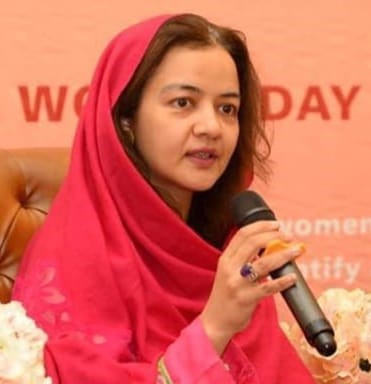 |
Dr. Bushra Rahim
Director Home Department KPK / CEO ABPAW
Dr Rahim has championed inclusive education, women empowerment, and social entrepreneurship in Pakistan for many years. She has established free schooling for street/out-of-school children as well as skill development centers in various districts of Khyber Pakhtunkhwa, Pakistan. Her recent initiative Kitab Dost (friendship with the book) aims to improve learning outcomes and reduce dropouts in government public schools and has been a demonstrated success. Bushra Rahim is an AusAid alumna, Charles Wallace Fellow, and Fulbright Alumna. She is a career civil servant, social entrepreneur, and Activist. Dr. Rahim is the founding member of a non-profit organization, Development Agent for Change, and also runs a social enterprise ‘Association of Business, Professional and Agricultural Women (ABPAW)’, which focuses on education, gender issues, livelihood, and environment. She is the President-elect of Fulbright Alumni Association KP Chapter and Board Member Consultreat, which specializes in delivering training programs and, counseling sessions for youth. She has received national and international awards from her Alma Maters in the US and Australia. Besides, she is an Editorial Board member of various international journals.
Topic: Making Life Beautiful for Afghan Women and Children in Pakistan
Abstract: According to an estimate, 0.834 million Afghan refugees are residing in KP, which is one of the highest numbers in Pakistan. Further breakdown of the refugee population shows that 35% lives in designated refugee villages and 65% of refugees live in urban and semi-urban areas. This gap will continue to widen considering the return of the Taliban to power in August 2021. The low literacy rates amongst girls and women and high rates of out-of-school children mean that human resource is being wasted, and who cannot earn a respectable livelihood nor can contribute towards the economy or for their self-betterment. Cognizant of these harsh realities, the Association of Business, Professional and Agricultural Women (ABPAW), a social enterprise set up by Pakistani women, strives to socio-economically empower female Afghan refugees, provide quality education to out-of-school children and improve the reading skills of students enrolled in schools in Khyber Pakhtunkhwa. The Keynote address will share the life-changing journey of Afghan students and female artisans over the years who are being supported by us through meager resources.
The stories of Afghan students and women artisans will be narrated through Quantitative and Qualitative techniques. The role of philanthropy, volunteerism, social mobilization, and networking among organizations will be discussed. By adopting concrete measures systematically and carefully, we are able to change the lives of many Afghan street children. Not only they but their immediate families and the next generation will reap the benefits of their education. A large number of human resources will go waste if they were not educated and trained. Women artisans are becoming entrepreneurs and earning a livelihood with dignity in their homes. Concerted and thoughtful efforts by a few Pakistani women are proving to be a change-maker for Afghan children and refugees. Without any major external support, these women are striving for a better future for those displaced from their homelands. Such innovative ideas shall be replicated by other organizations to make lives comfortable for Afghan refugees or migrants around the world. |
Panelists |
|
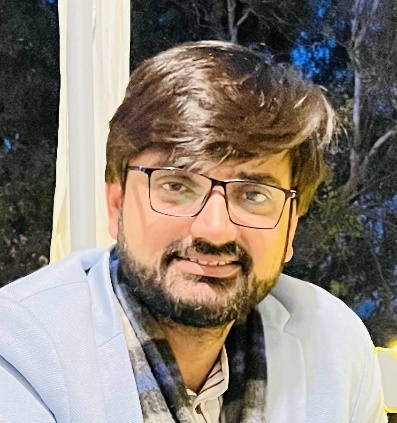 |
Dr. Malik Hammad Ahmad
Technical Expert Human Rights, Member National Assembly Standing Committee on Human Rights
Dr. Malik Hammad Ahmad, born and raised in Multan-Pakistan. Currently, I have been working as a Technical Expert (Human Rights) in NA standing Committee on HR, and Asstt. Prof. AIOU. islamabad. He has almost 17 years of professional experience focused on Human Rights, Education for Peace and Good Governance in the Development Sector (ActionAid International-Pakistan & ILEWASI-Spain), and Government of Pakistan; that also includes 6 years teaching History, Peace and Conflict Studies at various universities in Pakistan, United Kingdom and Spain. Done his PhD in History of Peace and Nonviolence from The University of Warwick-UK; MPhil in Peace, Conflict, and Development Studies (University of Jaume-I, Spain, & European Peace University, Austria), & MSc History (Quaid-i-Azam University, Islamabad-Pakistan), and has published a couple of articles, and a chapter on peacebuilding, published by Cambridge University Press. He has received numerous awards and research grants from renowned intl. Organisations such as Leverhulme Trust fellowship (UK), Higher Education Commission of Pakistan PhD partial-award, Charles Wallace Trust (UK) Bursary, Awardee of Trans-Atlantic Fellowship, Humanities Research Center, University of Warwick, (United Kingdom), Overseas PhD bursary (United Kingdom) 2014, The Leche Trust (UK), , CISN (UK), Spanish and, Austrian Development Cooperation funding and WISCOMP (Women in Security, Conflict Management and Peace) Scholar of Peace Award 2006, New Delhi. He is a recipient of City’s Peace Award for initiating the International Annaul Summer School on Peace Education and Child's Rights in 2011 in Spain, and has organised 10 editions of this school. Additionally, he is a trainer on Peacebuilding, CVE, social and religious tolerance, and nonviolent communication for which has done more than 20 trainings on the subjects for more than 300 students from various universities, and 80 teachers from Pakistan between 2017-2020 under the platform of several organizations. Similarly, he has represented Pakistan to several international forums including NATO, the Council of Europe and the United Nations, and nearly 32 countries around the world to attend workshops, trainings and lectures related to human rights, peace, CVE and economic development for peace. I can communicate in Seraiki, Urdu, English, Spanish, Catalan, Sindhi, & Hindi. |
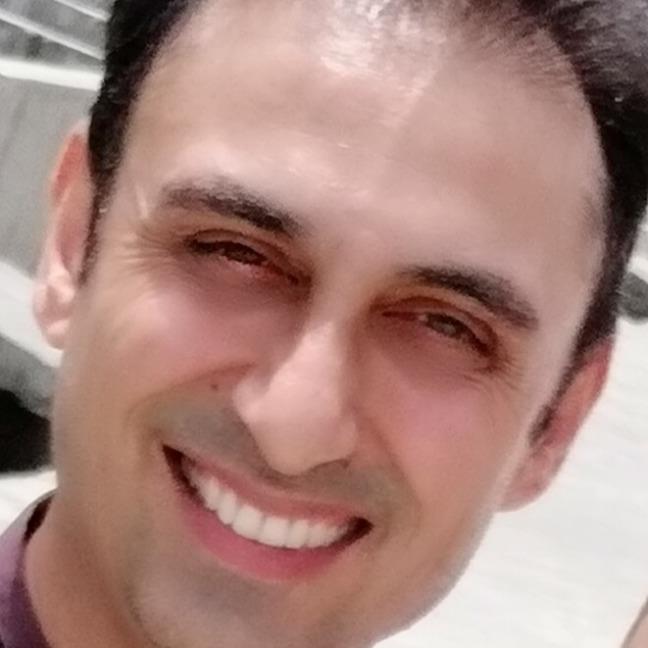 |
Tanveer Ul Haq
Senior Community Based Protection Assistant, UNHCR Sub Office Peshawar
Tanveer Ul Haq has been working with UNHCR Sub Office Peshawar from the last eighteen years. He has served in different units and roles in UNHCR during complex emergencies (Refugees/IDPs) and routine projects. Currently, he is working as Senior Community Based Protection Assistant in UNHCR Peshawar office. His work experience in Refugee and IDPs context has provided him exposure to deep understanding of UNHCR Protection mandate and its core principles. He possesses good knowledge of UNHCR’s strategic priorities and its implementation methodologies in the field. Tanveer has been involved in direct communication with the refugee communities which has provided him the knowledge of refugees’ challenges in the field. He finds solutions to the challenges by empowering the refugees and involving them in the decision making process. Tanveer has completed his master’s degree in Political Science which supplements his professional achievements. Tanveer is a team player and loves working in team.
|
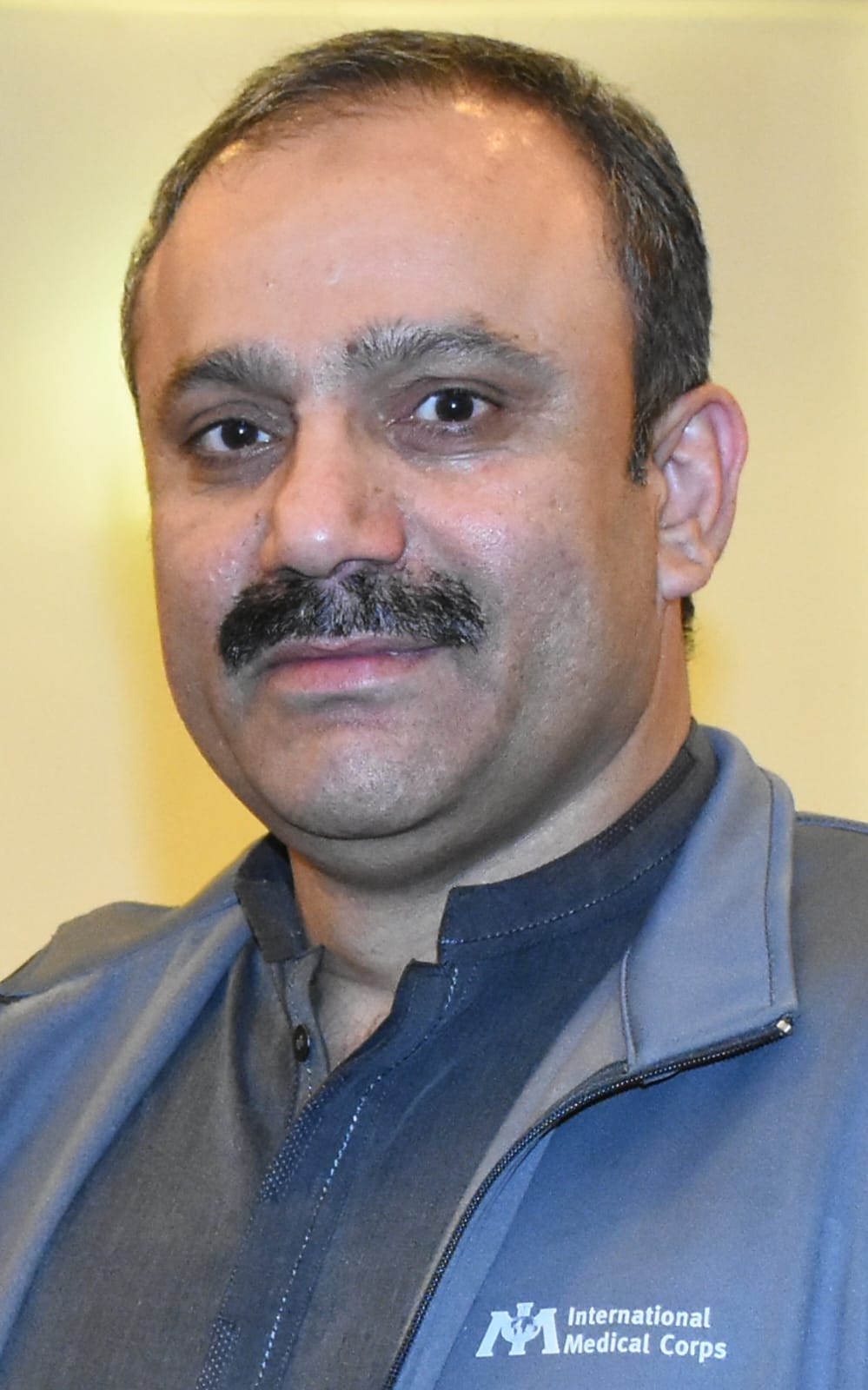 |
Syed Mohammad Shakeel
Field Coordinator, International Medical Corps
Syed Mohammad Shakeel, a dedicated professional with a strong commitment to humanitarian work. Since 2008, he has been an invaluable asset to the International Medical Corps (IMC). Prior to joining IMC, Shakeel worked with UNHCR between 2001 to 2008. Throughout his career, Shakeel has accumulated extensive expertise in the field. Within IMC, he has assumed diverse roles such as Gender-Based Violence trainer, GBV Officer, Sr. GBV Officer, Site Manager, and Field Coordinator/KP lead. He has also played a vital role as the focal person in the initial stages of emergencies in the provinces of KP, Sindh, and Punjab. Shakeel's academic background complements his professional accomplishments. He possesses LLB, Post Graduate Diploma in International Human Rights Law, and Master of Management Science in Public Health degrees. Guided by the fundamental principle "HUMANITY COMES FIRST," Shakeel continues to make a significant impact through his dedication to IMC's Mission "From relief to self-reliance."
|
 |
Dr. Waqar Ahmed
Head Migration Health Assessment Clinic Islamabad – IOM
Dr. Waqar, a medical doctor by profession, graduated from Khyber Medical College in 2001 and later moved to UK for higher clinical studies. He has been working with IOM after return from UK since 2007 and augmented his academic portfolio by achieving post-graduation in Public Health. Currently his working sphere encompass working with Migrants in the field of detection of Communicable and NonCommunicable Disease(s), mental health and risk of burden of public health systems. As a member of financial management core group, he has been involved in monetary planning of health interventions in the context of developing country economics, with specific emphasis on tackling solutions for cost effective administration of health programs. Having around 15 years working experience with the vulnerable population, he has an effective insight into mental health needs of Migrants.
|
Oral Presentations |
|
|
Discrimination & Internalizing Psychological Problems: Recommendations for Psychological Care of Afghan Migrants in Pakistan Ayla Khan (Ph.D. Scholar, Psychology Department, University of Haripur, KPK) Abstract: The present study examined the effect of discrimination on internalizing psychological problems among Afghan migrants in Pakistan. In a cross-sectional study, 230 Afghans completed the survey assessing perceived discrimination and internalizing psychological problems. Two assessment measures were used along the demographic sheet, a perceived discrimination scale (Williams et al, 1997) was used to measure discrimination, and DASS-21 (Lovibond & Lovibond, 1995) was used to assess symptoms of depression, anxiety, and stress among the research participants. Data were analyzed by using the Statistical Package for Social Sciences (SPSS), Version 23.0. Cronbach alpha values of the Perceived discrimination scale (α =.86) and DASS (α=.92) indicated the sound reliability of measures. The findings of the study suggested that discrimination and internalizing psychological problems were positively related (r=.28) to each other among Afghan migrants. Further, findings indicated that perceived discrimination was significant and positively predict internalizing psychological problems. Recommendations for psychological care of Afghan Migrants in Pakistan were discussed in detail considering current study findings. Overall, this study has the potential to contribute to a more equitable and just society that values the mental health and well-being of all individuals. |
|
|
Fostering Empowerment through Psychological Care, Safety and Protection Among Afghan Migrants: Empowering Women Children and Youth Dr. Huma Qayum (Assistant Professor, Islamic International University Islamabad) Dr. Maimoona Ismail Loona (HOD Psychology Department, Islamic International University Islamabad Abstract: The issue of the Afghan refugees is one of the greatest humanitarian disasters in world history. In consequence almost 2/3 of the population became dispersed from their homeland. In which 70% of them were women, children, and youth. Since 1970s millions of Afghan refugees took asylum in Pakistan, Iran, and other European countries. The Soviet Union military attacks started the first migration wave from Afghanistan in 1979. Similarly, the civil war among the different ethnic groups in Afghanistan in 1989 further enlarge the strength of Afghan refugees in camps of Pakistan and Iran. Subsequently, the US attacks on Afghanistan in 2001 and political and economic instability further shattered the Afghans towards migration. The US withdraw raises the hopes of peace and stability in Afghanistan, but in August 2021 the Taliban government came into power. Their brutal policies specially against women and stopping of educational activities greatly discourage the Afghans to flee from their homeland. Millions of Afghans started migration to Pakistan, Iran, Germany, US and Canada. The forced migration greatly affected the psychological condition of Afghans, especially women, children and youth lost their health care, missing educational and employment opportunities. This has far-reaching effects on the lives of Afghan migrants. This paper will highlight some of the psychological issues as well as remedies for the solution of such challenges. |
|
|
Perceived Discrimination and Psychological Wellbeing among Afghan Refugees: Moderating Role of Sense of Belongingness Ghazala Fazaldad (Islamabad College for Girls- ICG F-6/2, Islamabad) Dr. Mussarat Jabeen Khan (Department of Psychology, International Islamic University Islamabad) Abstract: Feeling of discrimination and stigmatization is always an unpleasant experience and it is also connected to reduce psychological wellbeing. The specific aim of the current study was to measure the association between perceived discrimination and psychological wellbeing among Afghan refugees. Another aim was to study the moderating role of sense of belongingness in relationship between perceived discrimination and psychological wellbeing. The sample consists of 100 refugees among which n=50 were males and n=50 were females. Sample was selected from different areas of Islamabad including G-8, G-9, G-10, G-11 sectors. Purposive sampling technique was utilized to collect data. Comparisons were made among refugees regarding their age, gender, family system and education. Perceived Discrimination Scale (Williams et.al., 2008), Psychological Wellbeing Scale (Ryff, et.al., 2010) and Brief Sense of Community Scale (Peterson, Speer & McMillan, 2008) along with demographic information sheet was used for data collection. Findings indicated that there is a significant negative relationship between perceived discrimination and psychological well being among refugees. Perceived discrimination was found to be higher in males as compared to females. Furthermore, sense of belongingness acts as a moderator between perceived discrimination and psychological wellbeing. This study seems beneficial in finding ways to enhance the sense of belongingness and community in refugees so that they can deal effectively with negative feelings of discrimination and can enjoy better psychological wellbeing. |
|
|
Exploring Psychosocial Experiences of Afghan Refugees in Pakistan: A Cross-Sectional Study Hussain Murtaza, Benish Usman, and Dr. Nelofar Kiran (National Institute of Psychology, Quaid-i-Azam University, Islamabad) Abstract: This study aims to examine the relationship between acculturation stress, perceived discrimination, identity crisis, and social support among Afghan refugees in Pakistan. A cross-sectional study is being conducted using self-report questionnaires to assess the impact of acculturation stress, perceived discrimination, identity crisis, and social support among Afghan refugees. The research utilizes four measurement scales: the S.A.F.E (Social, Attitudinal, Familial, Environmental) acculturation stress scale, the Perceived Discrimination scale, the Identity Distress scale, and the Multidimensional Perceived Social Support scale. The sample size consists of 40 Afghan refugees (both male and female) residing in Hazara colony Rawalpindi. The findings reveal a significant positive correlation between acculturation stress and perceived discrimination among Afghan refugees. Additionally, a strong association is discovered between perceived discrimination and identity crisis. Furthermore, social support is found to have a significant negative correlation with acculturation stress and identity crisis. These findings suggest that Afghan refugees in Pakistan face considerable levels of acculturation stress and perceived discrimination, which greatly contribute to their identity crisis. Another finding demonstrates that identity crisis significantly predicts perceived discrimination and acculturation stress among Afghan refugees. However, social support plays a crucial role in mitigating the negative effects of acculturation stress and identity crisis among this population. Findings also reveal that Afghan refugees who report higher levels of social support have significantly lower levels of acculturation stress compared to those with lower levels of social support. This finding highlights the importance of social support in reducing the negative impact of acculturation stress. These results have important implications for the development of intervention programs aimed at supporting Afghan refugees in Pakistan. Enhancing social support networks and addressing issues of perceived discrimination can potentially alleviate acculturation stress and identity crisis, leading to improved psychological well-being and overall adaptation among Afghan refugees. |
|
|
Intergenerational Transmission of War Trauma among Pak-Afghan Refugees Nighat Altaf (University of Haripur) Abstract: Pakistan has long become home to Afghan refugees. Though war and pre-migration come with their own stressors, the process of displacement, resettlement, and post-migration psychosocial factors may also contribute to elevated trauma and associated symptoms in Afghan refugees. The experience of war-related atrocities and distress may have consequences not only for the survivors themselves but for their children as well. This quantitative study examined the intergenerational transmission of war trauma across second and third-generation Afghan refugees. This research also aimed to investigate the role of family communication style and difficulties in emotion regulation as a mechanism in the transmission of trauma and related symptomology. A total of 89 participants comprised the current sample, with most of the sample representing individuals who identified as second and third Afghan refugees having a parent or grandparent war survivor, resettled in refugee camps and private households. The sample was approached through a purposive sampling technique following a cross-sectional survey research design. Trauma symptoms were assessed by using the Harvard Trauma Questionnaire (HTQ). Depression and anxiety were assessed by using the Hopkins Symptoms Checklist (HSCL-25). Family communication style and emotional regulation difficulties were measured using Family Communication Scale (FCS) and Difficulties in emotion regulation scale (DERS) respectively. We found that 24% of participants of the second generation had clinically significant trauma PTSD symptoms and 68% had clinically significant symptoms of depression and 50% had symptoms of anxiety. We found that 7% of participants of third generation had clinically significant trauma PTSD symptoms and 51 % had clinically significant symptoms of depression and 57 % had anxiety symptoms. The results demonstrated no significant association between war trauma exposure and trauma and related symptomology across second-generation and third-generation but an association was found between lifetime trauma exposure and trauma and related symptomology across third-generation. The second generation of Afghan refugees scored higher on trauma and related symptoms in comparison to the third generation. There was no gender difference found in terms of trauma exposure, PTSD, depression, and anxiety symptomology. Multiple hierarchal regression statistics were used to analyze the role of risk or protective factors. Family communication style negatively predicted the trauma symptomology and appeared as a protective factor in the transmission of trauma. Difficulties in emotion regulation contributed significantly toward the variance in levels of PTSD, anxiety, and depression and are predicted as aa a risk factor in the transmission of trauma across second and third generations. Exploring intergenerational trauma within the context of potential contributors could be invaluable in understanding and healing the trauma. |
|
|
Uncertainty Detests Cooperation: Readiness to Host Afghan Migrants Among Youth Sanam Younis and Dr. Humaira Jami (National Institute of Psychology, Quaid-i-Azam University, Islamabad) Abstract: Safety, protection, and care of migrants demand assessment of natives’ attitude towards migrants and underlying subtleties that define safe space for displaced individuals in host country. In the current scenario where, Pakistani youth is struggling for meeting their ends in the face of increased inflation, poverty, unemployability, poor education and health facilities hosting process seems challenging. This study is aimed to investigate the attitude of Pakistani youth towards the Afghan migrants and its relationship with their sense of control, pessimism/optimism about meeting life challenges, and level of general trust. The study is quantitative, and data were collected through questionnaire-based survey. Sample consisted of 238 university students, aged 18 to 35 years through convenient sampling technique. General Trust Scale, Sense of Control Scale, Orientation Towards Life Challenges Scale, and Attitude Towards Afghan Refugees domain of Attitude Towards Foreigners Scale were used to collect data. The findings revealed that participants who were optimistic about meeting their life challenges exhibited trust in others and felt in control of their own lives. This leads to positive attitude towards Afghan migrants in their home country. Percentages and frequencies across cut-off point shows that more than half of the participants were somewhat accepting towards presence of Afghan migrants in their home country. However, acceptance is differential in nature. Majority are not in favour of granting land ownership and nationality rights to Afghan migrants. They are perceived as threat to national sovereignty and connected it with increased incidences of smuggling, terrorism, drug dealing, target killings, and kidnaping. These findings give insights that for safe settlements across borders, the uncertainties in facing life challenges that natives face need to be addressed and their coping skills and sense of control needs to reinstate so that they could afford cooperation in safety and protection of migrants in their homeland. |
|